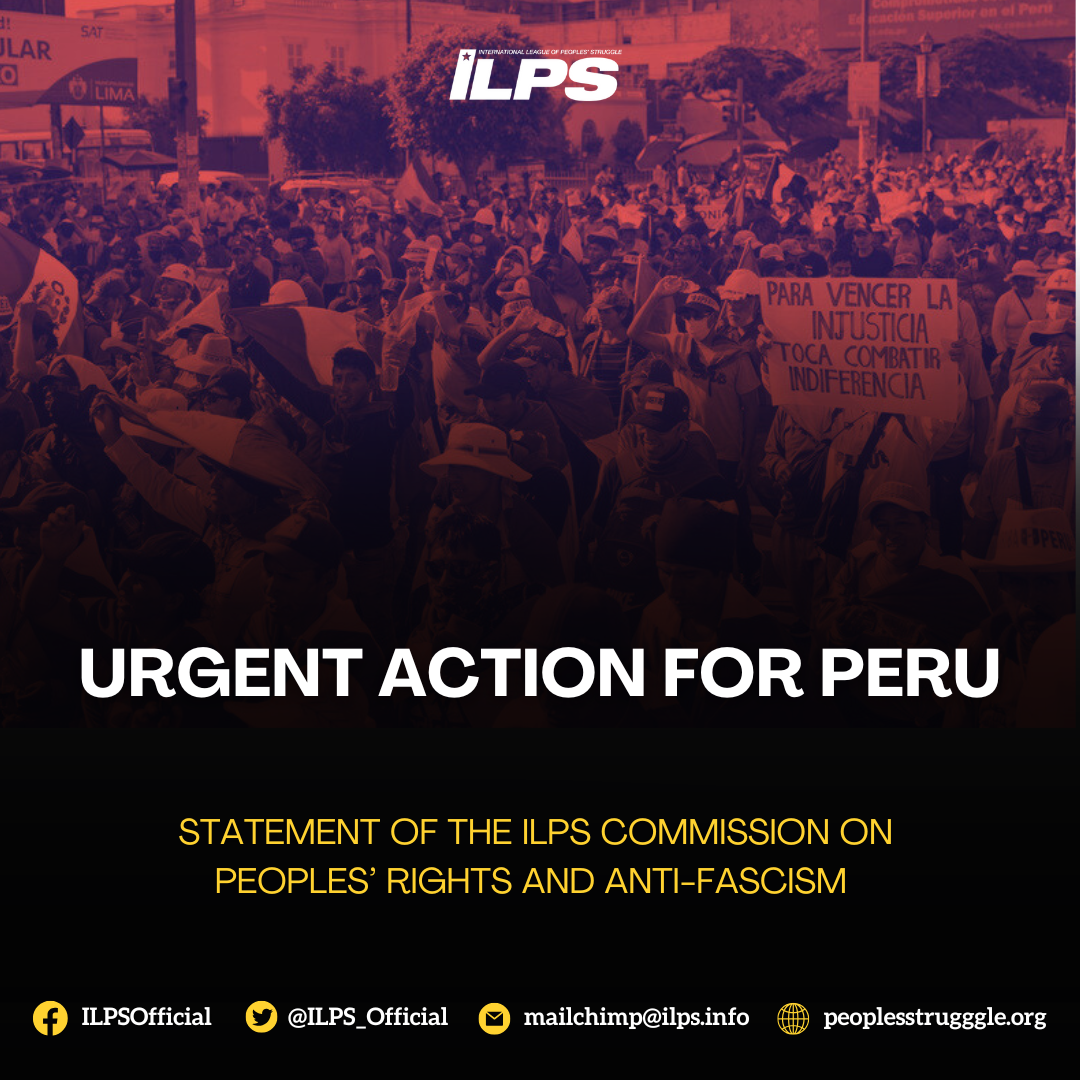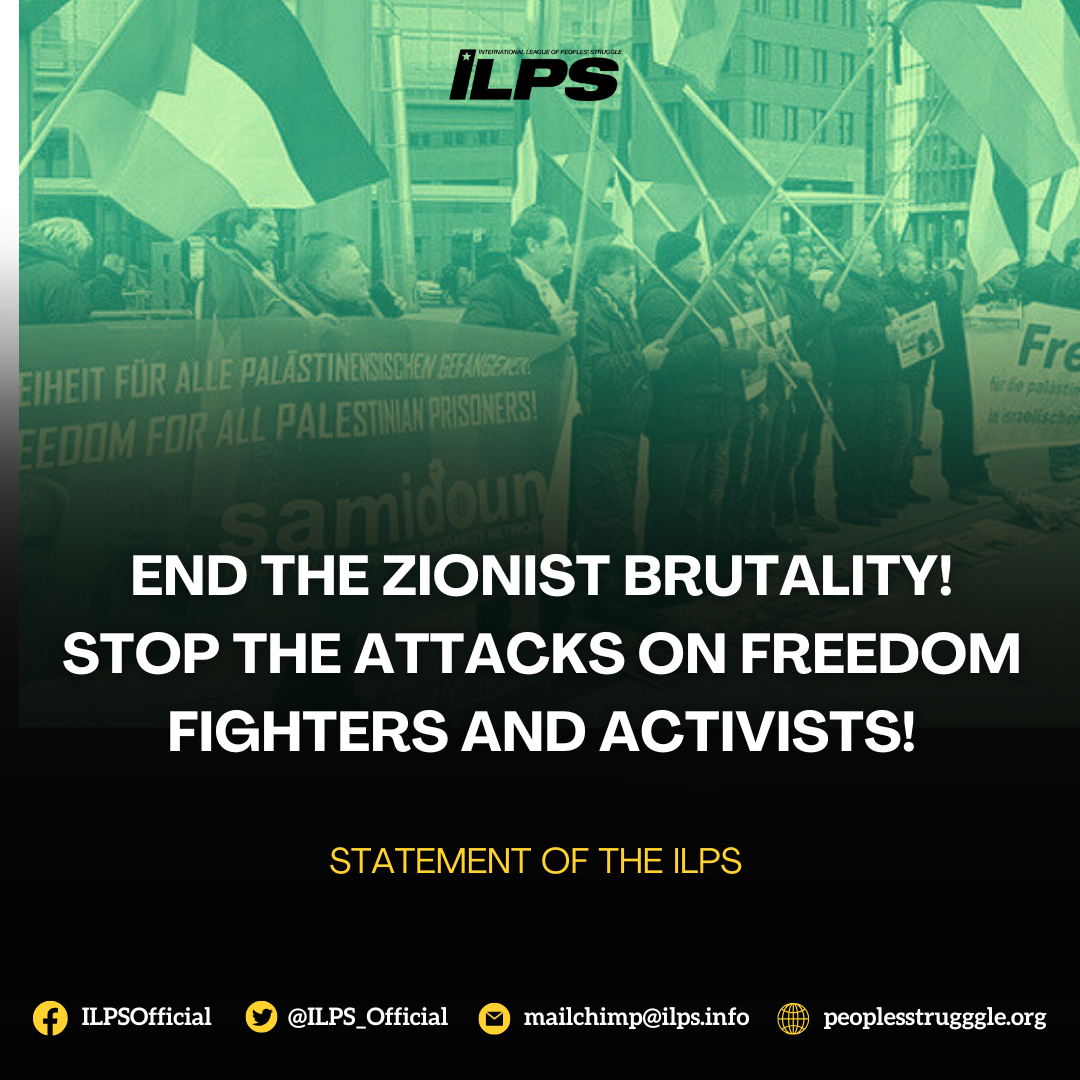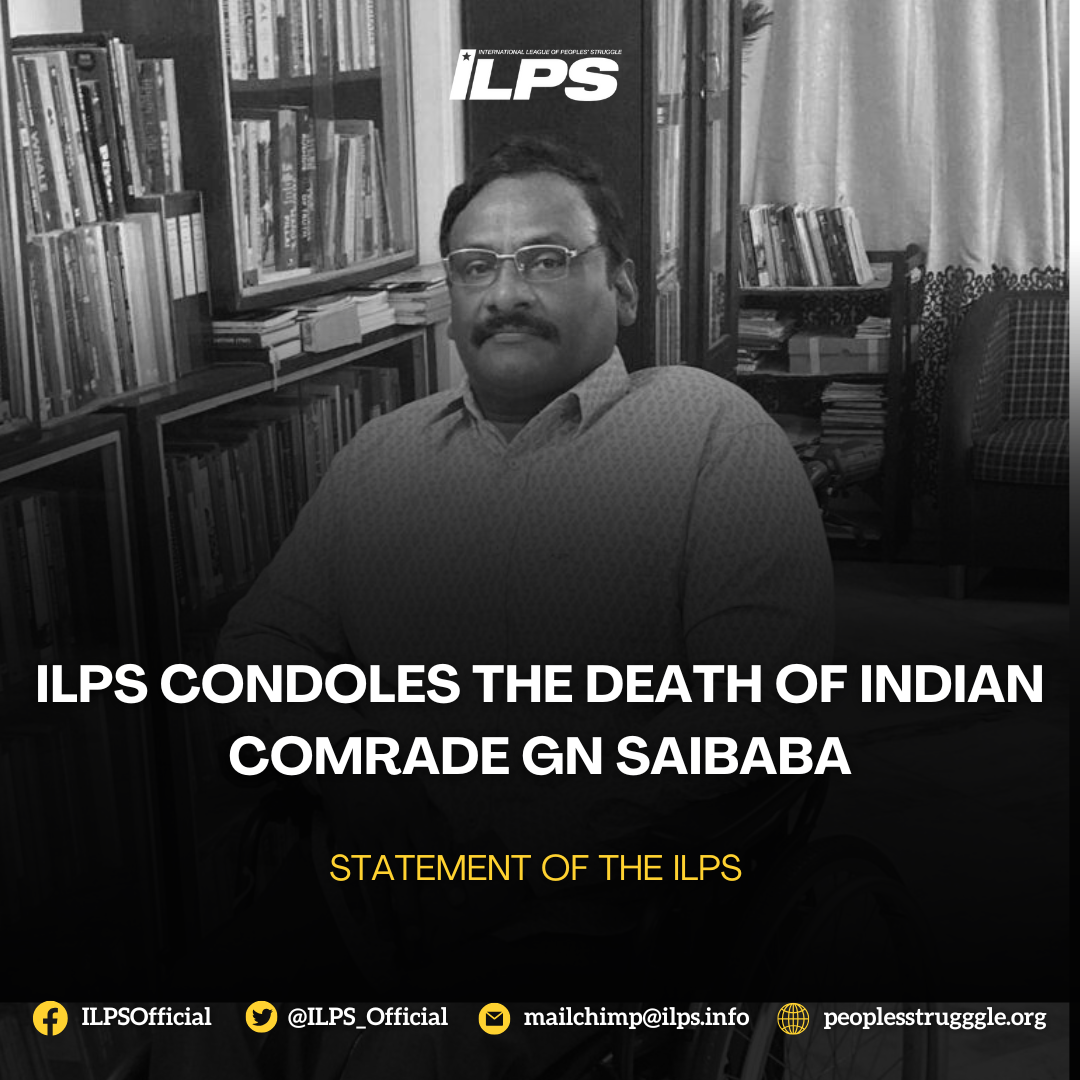Commission 2 of the International League of Peoples’ Struggles joins people’s movements, civil society, legal groups, and activists around the world in condemning the Philippine Anti-Terror Law, signed by President Duterte on July 4 and coming into force on July 19, 2020. We call for its repeal.
The law empowers an Anti-Terrorism Council appointed by President Duterte to define any form of dissent as “terrorism”, to order the warrantless surveillance of people for up to 90 days, the warrantless arrest of any “suspect”, and for these people to be detained without charge for up to 24 days. It is another big step by President Duterte toward undeclared Martial Law regime and legitimized state terrorism.
Simply “intending” to “interfere with” public infrastructure, or “intending” to “create an atmosphere to send a message of fear” is defined as terrorism. Persons who propose, incite, conspire, and participate in the planning, training, and facilitation an “offence” under the Act, as well as those who provide support to “terrorists” as defined under the Act, or recruit members of a “terrorist organisation”, could face life imprisonment without parole.
We strongly support the many petitions to the Philippines Supreme Court to strike down this law because it contradicts the Bill of Rights in the Constitution, and if the Supreme Court moves to act quickly and stop the ATL to uphold civil and political rights, it would be upholding the interests and demands of the majority of the people. We congratulate those 20 members of the Philippine Congress who withdrew their support for the Act after listening to their constituents, but they were not enough. We must be part of a big people’s movement to junk this law if we are to succeed in defending people’s rights.
The Office of the UN High Commissioner on Human Rights, the youth climate activist Greta Thunberg, the struggling Wet’suwet’en people of Canada, journalist Naomi Klein and many more international voices have condemned the Philippine “Anti-Terror Law”. Yet, the Philippine government is determined to bring it into force.
As a global network of advocates and researchers for genuine development, equality and peace, we urge the international community to join the calls for this law to be repealed and cancelled, and to support ongoing people’s efforts to hold the Duterte administration accountable for the massive number of the people killed in his ‘war on drugs’, the hundreds of community leaders and human rights defenders killed in his counter-insurgency campaign, and for the women raped by soldiers and police at his personal incitement.
There can be no genuine development, no possibilities for people’s leadership in development and governance, without basic civil-political rights. Instead of addressing peoples’ grievances about worsening economic conditions, poor health systems, elite power, and systemic violence, many states like Duterte’s Philippines evade accountability and consolidate their rule under the cover of “counter-terrorism.”
The COVID-19 pandemic, with its growing casualties, its escalating number of cases, its huge impact on public health resources and its huge global economic impact is causing great distress in families and communities, and is also destabilising political relationships and government systems.
The pandemic requires sustained global cooperation if it is to be contained and its many impacts mitigated. But insecure and authoritarian governments are responding with repression to consolidate their grip on diminishing revenue streams and to protect themselves from criticism for failing their populations during the pandemic.
The Filipino public was shocked to find that the Congress was prioritising the Anti-Terror Bill in May and June instead of addressing the huge difficulties people were experiencing with the pandemic lockdown, job losses, and widespread hunger. That explains why protests against the new law are so widely based and vigorous. Faced with specific criticism at the United Nations Human Rights Council in June, Duterte forced the Anti-Terror Bill through Congress and waited until after the June 30 session of the Human Rights Council to sign it into law. This is the behaviour of a rogue state in the international community.
What is happening with the Philippine Anti-Terror Law is mirrored in other states. Hong Kong dissidents are now being arrested for holding up blank sheets of paper, and charged with sedition and treason. In Malaysia, an Al-Jazeera team of six media workers were detained for reporting on the treatment of undocumented refugees during the pandemic. The authorities are considering charges of sedition, defamation, and violation of the media law.
In India, the Modi government uses longstanding security laws as well as declarations of emergency to continue to transform the country from a secular to a Hindu state. The main anti-terrorism law, the Unlawful Activities (Prevention) Act 1967, amended after the Mumbai terrorist attack of 2008 to include a broad definition of terrorism, allows for an extended period of detention without bail and provides for an assumption of guilt rather than innocence under certain conditions. The sedition law, section 124A of the Indian Penal Code (IPC), is a colonial-era law that was once used against political leaders seeking independence from British rule. Unfortunately, it is still often used against dissenters, human rights activists, and those critical of the government.
Australia’s Morrison government allows raids on, arrest and prosecution of journalists, holding of secret trials of lawyers, and extending the interrogation powers of its intelligence agency without judicial oversight, as well as expansive interference with computers without warrant.
The British, US and Australian governments work together to lock up and torture Julian Assange, a media worker who exposed US military atrocities in Iraq and Afghanistan.
Repression of people’s voices must never be the “new normal” anywhere. The Black Lives Matter movement in the USA and globally is showing that state repression can be confronted by the people, and can be reduced or stopped.
The great global crisis triggered by the COVID-19 pandemic has exposed the shocking inequality and exploitation which is maintained and protected by international economic and governance norms, unaccountable capitalist elites and world powers. It is now vital to drive systemic change, a shift in power relations that puts people’s rights and their sovereignty at the centre.
Junking Duterte’s Anti-Terror Law is our urgent task in this historic effort.



